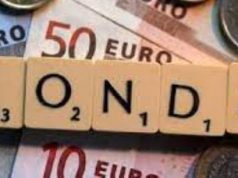By Rebecca Ellis
TUE, JULY 02 2019-theG&BJournal-Europe is suffering from its worst heat wave in decades. Politicians will soon retreat to their holiday homes and have some thoughts about the merits of air conditioning and climate change. Many political issues remain unsolved across the globe and investors are mostly unsure of what to do as the two main markets are sending seemingly very different messages.
That has been the conundrum facing many hedge funds and other investors, as they try to work out whether to listen to a doom-mongering bond market or too upbeat stocks.
The 10-year Treasury yield has plunged from 2.69% to below 2 per cent, its lowest level since late 2016, as expectations grow of interest rate cuts to combat a sharp economic slowdown or recession. Such a move is more common in times of full-blown crisis. The German Bund trades at its lowest historical yield of minus (!) 0.30/year which means for every EUR 1000 you invest you lose EUR 30 per year. Still, markets also expect the ECB to support yields lower still.
Intuitively, you would argue, it makes no sense to buy a long-dated bond with a negative yield. Still, pension funds and insurance companies must by law buy bonds with long maturities even at low yields. In 2017, Austria issued a 100-year bond yielding 2.1%. As yields have fallen further to 1.2% the Austrian bond’s price has appreciated a whopping 60% in less than 2 years. This is the main driver for investors still buying long-dated bonds even at low or negative rates. At such low and negative rates, we are clearly in crisis mode.
Stocks, however, tell a different tale. The S&P 500 index hit a new record high last week and is now on course for its best half-year since 2010. The ugly pullback of late 2018 and a mini sell-off last month are now distant memories. Interestingly, much cash is sitting on the sidelines waiting for opportunities. The private equity industry has amassed a war-chest of some USD 2.5 trillion ready to be deployed when the right deal appears. Brace for some Merger and Acquisitions activity.
The two markets are of course taking the same cues. Both have heeded dovish noises from the US Federal Reserve and European Central Bank, which have led to hopes of further stimulus.
The question is why that stimulus is needed. If it is a response to a technical failure to hit inflation targets, that is one thing. If, however, it reflects central banks’ anticipation of deep economic malaise, risky bets on stocks make little sense. That leaves investors caught between the benefits of low borrowing costs for companies and the headwind of a potential economic slowdown.
And that confusion comes before you add in the fallout from the US-China trade war.
With both markets at such extremes and apparently telling different stories, then, positioning is not straightforward. What should investors do?
Remember that markets never show a clear and distinct direction. Still, the best solution is to remember your investment strategy that you set out to pursue. Remember to stick to it no matter what the daily movements of the markets or central bankers or politicians may say at any one moment. And review it in long intervals, i.e. once a year.
We have recommended to stay out of the bond markets for the past few years as dividend stocks offer higher returns and a chance for some upside. The stock markets always offer opportunities and sometimes we must dig harder to uncover them.
As the summer heat is not likely to dissipate, take a break and give your strategy some thought. We are always ready to be your sounding board.
Rebecca Ellis is a Personal investment advisor, based in Zurich|rebecca.ellis@pomonawealth.com|pascal.crepin@pomonawealth.com.
|twitter:@theGBJournal|email: info@govandbusinessjournal.com.ng|









